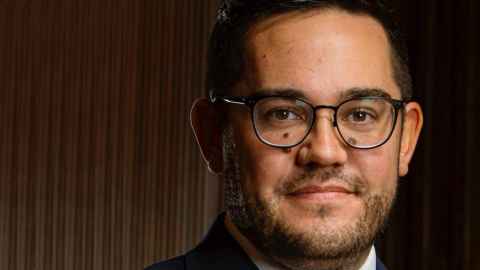Kingi Snelgar
Kingi Snelgar is a trailblazing barrister, Harvard law graduate, Fulbright scholar and advocate for indigenous rights. He lives and works in Auckland as a lawyer.

Since graduating as the top Māori law student in 2011, Kingi Snelgar has combined his practice with challenging the status quo in legal systems that fail to embrace indigenous perspectives.
He has advocated for this in New Zealand, as well as in the United States, where he completed his masters at the prestigious Harvard Law School.
“A Māori worldview is desperately lacking in our legal system,” Kingi says.
“On multiple levels our justice system fails Māori. One of the most important approaches to changing that is to better incorporate tikanga Māori into our legal framework. The other is to have more Māori represented as lawyers.”
Last year, Kingi contributed to a small but important gain as part of the legal team that argued the Peter Ellis case in the Supreme Court.
Kingi successfully fought for tikanga Māori to be recognised in the decision to posthumously exonerate Ellis of convictions of child sex offences.
Under tikanga, mana and reputation continue after an individual’s death.
“I was fortunate to work with super talented lawyers and was thrilled to assist in overturning his convictions after he died.”
Kingi has ties to Ngāpuhi, Ngāti Whakaue, Te Whakatōhea and Ngāi Tahu and grew up in Whangārei before attending King’s College boarding school in Auckland.
He completed a conjoint Bachelor of Laws and Arts degree at the University of Auckland, which was when he realised he could use his education to make a significant difference to indigenous rights.
“Studying at the law school gave me the confidence and experiences to push my thinking,” Kingi says.
“I’m proud to have graduated and to work as a lawyer. I think I was the first from my marae to do this,” he says.
In 2011 Kingi was awarded a prestigious US$40,000 Fulbright Scholarship to undertake a Master of Laws at Harvard, and greater opportunities to advocate indigenous rights.
Notably while in the United States, Kingi was a human rights observer at the Standing Rock protests in North Dakota, and appeared before the United Nations on indigenous rights issues.
He now lives in Auckland with his whānau and two tamariki, where he continues to practise as a barrister at Bankside Chambers.
Kingi says his whānau helped shape him into the lawyer he is today.
“My parents taught me the value of hard work and perseverance. My nana raised her siblings and didn’t get to finish school but returned to education in her seventies.
“It takes a community to raise a child. I saw that in my upbringing with my older sisters raising me together with my parents. My uncles also helped guide and shape who I am. My whānau encouraged me to challenge the status quo and aim high.
“Another influential role model for me was the late Dr Moana Jackson. I admire his amazing critical thinking and ability to explain complex ideas in an accessible way,” says Kingi.
“I’d love to move home to Whangārei in the near future and contribute more to my community. My goal is to continue to create spaces and opportunities for other Māori lawyers.”